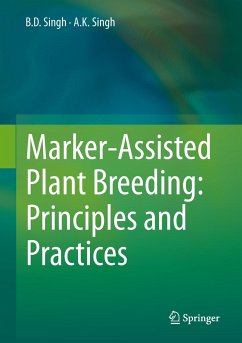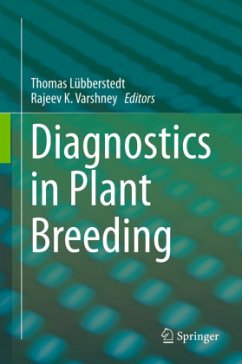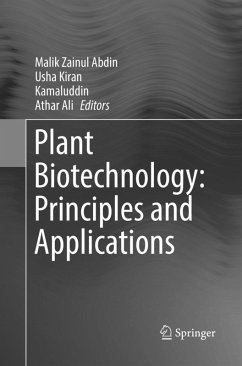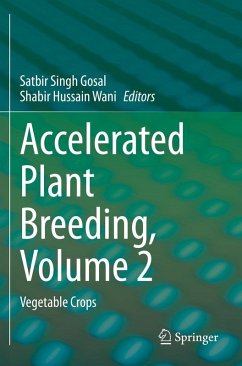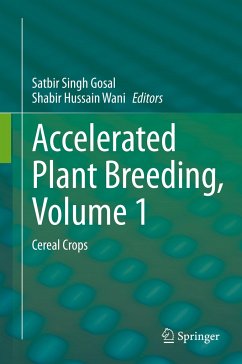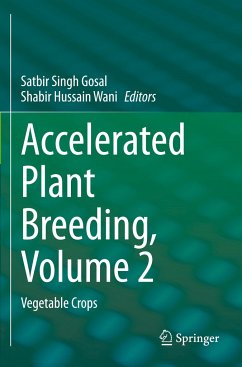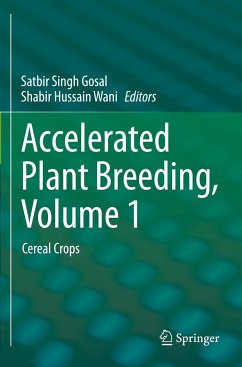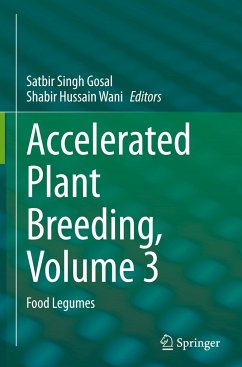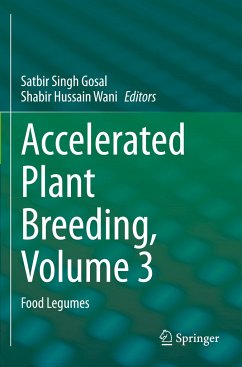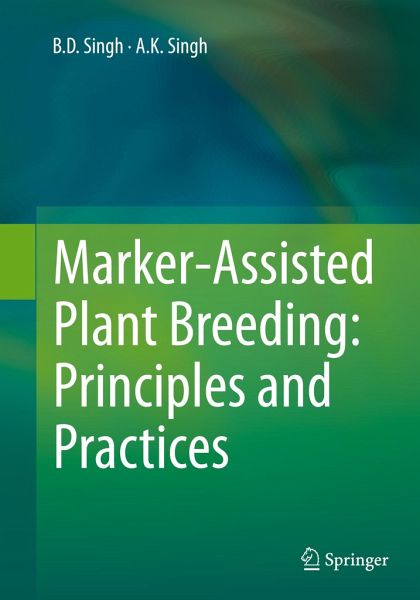
Marker-Assisted Plant Breeding: Principles and Practices
Versandkostenfrei!
Versandfertig in 6-10 Tagen
167,99 €
inkl. MwSt.
Weitere Ausgaben:

PAYBACK Punkte
84 °P sammeln!
Marker-assisted plant breeding involves the application of molecular marker techniques and statistical and bioinformatics tools to achieve plant breeding objectives in a cost-effective and time-efficient manner. This book is intended for beginners in the field who have little or no prior exposure to molecular markers and their applications, but who do have a basic knowledge of genetics and plant breeding, and some exposure to molecular biology. An attempt has been made to provide sufficient basic information in an easy-to-follow format, and also to discuss current issues and developments so as...
Marker-assisted plant breeding involves the application of molecular marker techniques and statistical and bioinformatics tools to achieve plant breeding objectives in a cost-effective and time-efficient manner. This book is intended for beginners in the field who have little or no prior exposure to molecular markers and their applications, but who do have a basic knowledge of genetics and plant breeding, and some exposure to molecular biology. An attempt has been made to provide sufficient basic information in an easy-to-follow format, and also to discuss current issues and developments so as to offer comprehensive coverage of the subject matter. The book will also be useful for breeders and research workers, as it offers a broad range of up-to-the-year information, including aspects like the development of different molecular markers and their various applications. In the first chapter, the field of marker-assisted plant breeding is introduced and placed in the proper perspectivein relation to plant breeding. The next three chapters describe the various molecular marker systems, while mapping populations and mapping procedures including high-throughput genotyping are discussed in the subsequent five chapters. Four chapters are devoted to various applications of markers, e.g. marker-assisted selection, genomic selection, diversity analysis, finger printing and positional cloning. In closing, the last two chapters provide information on relevant bioinformatics tools and the rapidly evolving field of phenomics.




